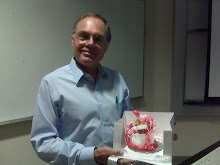Maybe It Was a Scary Science Experiment
Bill Nye, TV's beloved "Science Guy," recently gave a speech before a packed Bovard Auditorium at the University of Southern California. Then late in his speech, he collapsed. He got up, but clearly something wasn't right. Two students in the balcony thought those near Mr. Nye didn't do enough to help the stricken star. They went to the student newspaper, then the Los Angeles Times, and quickly started an exaggerated account that students were callously Tweeting as Mr. Nye was passed out in front of them.
It was a classic Internet-spread rumor, fueled by a celebrity and a grain of truth.
Labels: internet, mediaeffects, newspapers

